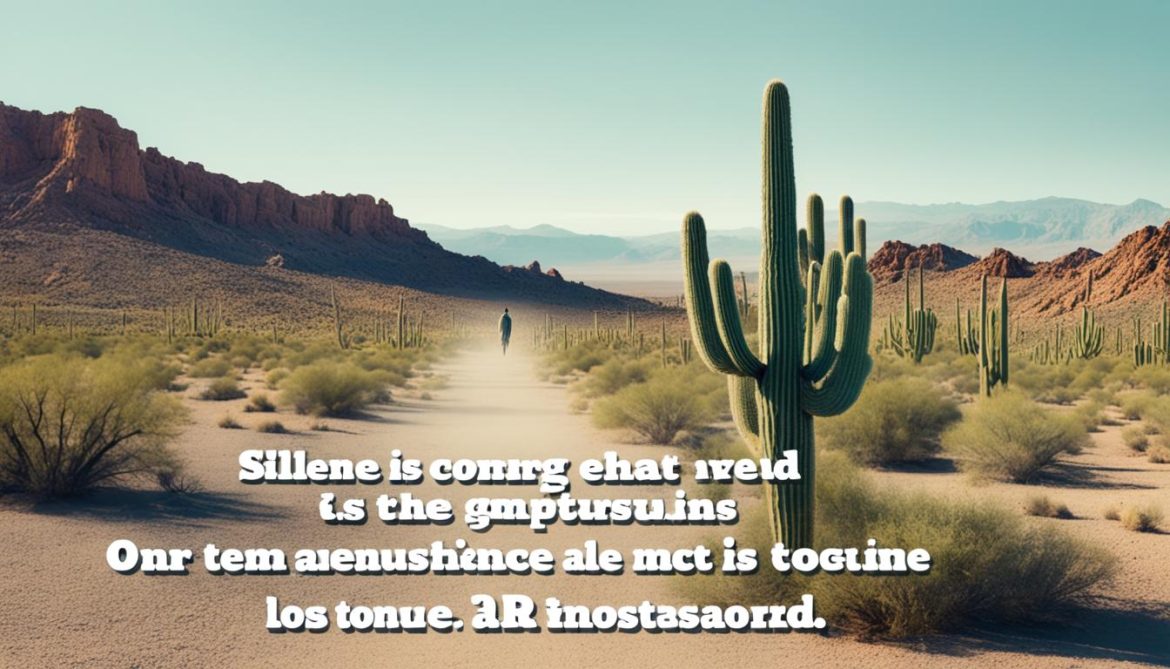Ghosting is a frustrating and hurtful experience that many people have encountered in their relationships. Whether it’s in the realm of dating, friendships, or even professional connections, being ghosted leaves you with unanswered questions and a sense of abandonment.
But what exactly does ghosting mean? Ghosting is the act of abruptly ending communication without any explanation. It’s like being left in a room alone, with no idea of why the other person has disappeared.
So why do people ghost? What goes on in their minds when they choose to vanish without a trace? Exploring the psychology behind ghosting can help shed some light on this perplexing phenomenon.
The impact of being ghosted can be profound. The emotional consequences include feelings of rejection, a blow to one’s self-esteem, and a lingering sense of confusion. Coping with being ghosted is crucial for healing and moving forward.
In this article, we delve into quotes on ghosting to provide insight into this silent and heartbreaking experience. By understanding the reasons behind ghosting and learning strategies to cope, you can navigate the complexities of modern relationships with resilience and empathy.
Understanding Ghosting
Ghosting, defined as abruptly ending communication with someone without any explanation, is a prevalent practice in various contexts, including dating, friendships, and professional relationships. With the ease of digital communication, ghosting has become more common, leaving individuals in the dark and grappling with unanswered questions.
The Psychology Behind Ghosting
Ghosting is a complex social phenomenon that can leave individuals on the receiving end feeling hurt, confused, and abandoned. To understand why ghosting occurs, we must delve into the psychology behind this behavior.
Reasons for Ghosting:
- Avoidance of uncomfortable conversations or conflict: Some individuals choose to ghost as a means of escaping difficult discussions or confrontations. By abruptly cutting off communication, they can avoid facing any potential discomfort or emotional strain.
- Avoidance of emotional intimacy: Ghosting may also stem from a fear of connecting with others on a deeper level. Individuals who struggle with emotional vulnerability might opt to disappear rather than engage in a potentially intimate relationship.
- Feeling overwhelmed by digital communication: The rise of technology and constant connectivity has changed the way we interact. Some people resort to ghosting as a response to feeling overwhelmed by the sheer volume of messages and notifications, seeking a temporary escape from the digital world.
Understanding these underlying reasons behind ghosting can offer insights into human behavior and shed light on the motivations behind this perplexing phenomenon.
The Impact of Technology on Ghosting
In today’s digital age, technology plays a significant role in shaping our relationships and communication patterns. The prevalence of online dating apps, social media platforms, and instant messaging has made it easier for individuals to connect and disconnect.
With the click of a button, one can vanish from someone’s life without any explanation or closure. This ease of ghosting has contributed to its growing popularity, as people feel less accountable for their actions behind the shield of a screen.
Moreover, the online realm allows individuals to present a curated version of themselves, leading to increased pressure and expectation. The fear of disappointing or not living up to these constructed ideals can lead to a higher likelihood of ghosting as a coping mechanism.
It is important to recognize the influence of technology and its role in causing and perpetuating the psychology behind ghosting.
Psychological Effects of Ghosting
The act of being ghosted can have profound psychological effects on the individual who is left without explanation or closure.
Feelings of rejection and low self-esteem are common reactions to ghosting. Being disregarded without any communication can lead to questioning one’s worth and desirability. The lack of closure can leave individuals with a sense of unfinished business, constantly seeking answers to questions that may never be answered.
Trust issues may arise as a result of being ghosted, making it challenging to form new connections and engage in future relationships. The experience of being left without any warning or consideration can erode trust in others and oneself.
It is essential to recognize and address the psychological consequences of ghosting in order to heal and move forward.
The Psychology and Ghosting in Different Contexts
The psychology behind ghosting extends beyond the realm of romantic relationships. It can occur in friendships, professional relationships, and even within families.
Ghosting in Friendships:
Friends may ghost each other for various reasons, such as conflicts, diverging interests, or changing life circumstances. The psychology behind friendship ghosting often involves a lack of communication skills, fear of confrontation, or a desire to move on without explanation.
Ghosting in Professional Relationships:
Ghosting can also occur within the professional realm. In this context, it often stems from a lack of professionalism, poor work dynamics, or a desire to avoid uncomfortable conversations, such as resignations or confrontations with colleagues.
Ghosting in Family Dynamics:
Even within families, ghosting can create rifts and strained relationships. Family members may ghost one another due to unresolved conflicts, differences in values, or personal reasons that drive them to sever ties without explanation.
The Role of Empathy and Communication
Empathy and effective communication are crucial in mitigating the occurrence of ghosting and fostering healthier relationships. By understanding the underlying psychological factors that contribute to ghosting, we can promote empathy and develop better interpersonal skills.
Open and honest communication, along with active listening, can help prevent misunderstandings and miscommunications that might lead to ghosting. Building emotional intelligence and addressing underlying fears or anxieties can allow individuals to navigate relationships with greater honesty and authenticity.
Ultimately, fostering empathy, effective communication, and self-reflection can create a supportive environment that discourages the phenomenon of ghosting.
The Psychology Behind Ghosting: An Overview
Ghosting is a multifaceted behavior influenced by psychological, social, and technological factors. By exploring the reasons behind ghosting and its impact on individuals, we can gain insights into human behavior, communication patterns, and relationship dynamics.
Understanding the psychology behind ghosting is essential in addressing this phenomenon and promoting healthier, more fulfilling connections.
| Psychological Factors | Reasons for Ghosting |
|---|---|
| Avoidance of uncomfortable conversations or conflict | Some individuals choose to ghost as a way to avoid uncomfortable discussions or conflicts. |
| Avoidance of emotional intimacy | Ghosting may stem from a fear of emotional vulnerability and intimacy in relationships. |
| Feeling overwhelmed by digital communication | Ghosting can be a coping mechanism for those overwhelmed by the constant demands of digital communication. |
Impact on Those Who are Ghosted
Being ghosted can have significant emotional consequences for the person who is left in the dark. The experience can result in feelings of rejection, low self-esteem, and confusion. When someone suddenly disappears without explanation, it leaves the ghosted individual grasping for answers and experiencing a range of negative emotions.
Ghosting can also have psychological effects that can linger long after the initial experience. It can lead to trust issues, making it difficult for the ghosted person to form new relationships or trust others. The lack of closure and explanation often leaves individuals seeking answers and resolution, which can further impact their emotional well-being.
The Emotional Toll
When someone is ghosted, they often question their self-worth and wonder what they did wrong. It’s natural to feel rejected and even blame yourself for the abrupt end of the relationship or connection. This can result in low self-esteem and a diminished sense of self-worth.
The confusion that arises from being ghosted can also take a toll on one’s mental health. The unanswered questions and lack of closure can lead to feelings of anxiety and sadness. It’s common to constantly replay past conversations and interactions, trying to find clues or hints as to why the person chose to disappear.
The Impact on Trust
Ghosting can erode trust and make it difficult for the ghosted person to form new relationships or trust others. It creates a sense of uncertainty and insecurity, which can lead to a reluctance to invest emotionally in future connections. The fear of being abandoned or rejected again can be overwhelming, causing the person to put up emotional barriers.
Coping with the Fallout
Recovering from being ghosted can be challenging, but it is possible to heal and move forward. Seeking support from friends or a therapist can provide a safe space to process emotions and gain perspective. Engaging in self-care activities, such as practicing mindfulness or participating in hobbies, can also help in rebuilding self-esteem and finding inner strength.
Remember that being ghosted is not a reflection of your worth or value as a person. It’s important to focus on self-love and surround yourself with positive influences to rebuild trust and open yourself up to new connections and experiences.
Coping with Being Ghosted
Dealing with being ghosted can be a challenging and painful experience. However, there are strategies you can implement to help cope with the emotional aftermath and take steps towards healing. Remember, you are not alone in this experience, and support is available.
Seek Support from Friends and Family
When faced with the confusion and hurt of being ghosted, turning to your trusted loved ones can provide a sense of comfort and understanding. Share your feelings with them openly, allowing them to offer empathy and support during this difficult time. Talking through your emotions can help you gain perspective and alleviate some of the pain.
Engage in Self-Reflection
Processing the experience of being ghosted requires introspection. Take the time to reflect on the relationship and the events leading up to the ghosting incident. Consider if there were any warning signs or unresolved issues that may have contributed to the other person’s decision to ghost. This self-reflection can help you identify areas for personal growth and enable you to make more informed choices in future relationships.
Focus on Self-Care and Building Resilience
Dealing with the emotional aftermath of ghosting may leave you feeling depleted and vulnerable. It is crucial to prioritize self-care and engage in activities that bring you joy and fulfillment. Consider practicing mindfulness, engaging in hobbies, or exercising. These activities can help improve your overall well-being and build resilience in the face of adversity.
Validate Your Feelings and Avoid Self-Blame
It’s essential to recognize that being ghosted is not a reflection of your worth or value as a person. Avoid blaming yourself for the ghosting incident, as it is a reflection of the ghoster’s issues and their inability to communicate effectively. Validate your feelings of hurt, confusion, and disappointment, allowing yourself to process and heal without self-judgment.

Understanding that ghosting is a common phenomenon in today’s digital age can provide some solace. By implementing strategies such as seeking support from loved ones, engaging in self-reflection, prioritizing self-care, and validating your feelings, you can navigate the aftermath of being ghosted and move towards emotional healing.
Addressing Ghosting in Relationships
Communication plays a vital role in addressing and preventing ghosting in relationships. Open and honest communication is crucial for building trust and understanding between partners. By fostering effective communication, you can establish a strong foundation that reduces the likelihood of ghosting.
One important aspect of communication in relationships is setting clear boundaries. By defining what is acceptable and unacceptable behavior, both partners can have a clear understanding of each other’s expectations. This clarity helps prevent miscommunication and reduces the chances of misunderstandings that can lead to ghosting.
Understanding each other’s emotional needs is also essential for addressing ghosting. By empathizing with your partner’s feelings and actively listening to their concerns, you can create a supportive environment where both parties feel valued and understood. Taking the time to communicate openly about emotions can help prevent emotional disconnection and the impulse to ghost.
Building emotional intelligence is another valuable skill in navigating relationship challenges and addressing ghosting. Becoming more aware of your own emotions and developing the ability to recognize and empathize with your partner’s emotions can foster deeper connections and improve communication. Emotional intelligence allows you to express your needs effectively and understand the impact of your actions, reducing the likelihood of resorting to ghosting as a means of escape.
Remember, addressing ghosting requires a commitment to open communication, setting boundaries, understanding emotional needs, and developing emotional intelligence. By prioritizing these elements, you can foster healthier relationships and reduce the risk of ghosting.
Fostering Healthier Communication
While ghosting may seem like an easy way out of a relationship, it is important to recognize the lasting effects it has on both parties involved. Building healthier communication practices and understanding the underlying reasons for ghosting can help mitigate this trend and promote positive interactions.
Effective communication is the foundation of any healthy relationship. It allows individuals to express their needs, concerns, and emotions openly while fostering trust and understanding. By prioritizing communication, you can create an environment where both partners feel heard, valued, and respected.
Empathy and respect are key components of healthy communication. It is crucial to consider the feelings and perspectives of your partner, even when discussing difficult topics. By approaching conversations with empathy, you can create a safe space for open dialogue and find mutually beneficial solutions to challenges.
Active Listening and Validation
One essential aspect of effective communication is active listening. This involves giving your full attention to your partner, maintaining eye contact, and responding with interest and understanding. By practicing active listening, you show that you value their thoughts and feelings, which can strengthen the bond between you.
Validation is also crucial in fostering healthier communication. It involves acknowledging your partner’s emotions and experiences without judgment or criticism. Validating their feelings helps create an environment where they feel safe expressing themselves, which can lead to deeper emotional connection and growth within the relationship.
Setting Boundaries
Setting clear boundaries is another essential aspect of healthy communication. Boundaries help define what is acceptable and unacceptable in a relationship, ensuring that both partners feel comfortable and respected. By openly discussing and respecting each other’s boundaries, you can establish a strong foundation for communication, trust, and mutual understanding.
Resolving Conflict
Conflict is a natural part of any relationship, but how it is managed can greatly impact the overall health and longevity of the partnership. When conflict arises, it is important to address it in a constructive and respectful manner. This involves actively listening to each other’s perspectives, finding common ground, and seeking mutually satisfactory resolutions. By approaching conflict with empathy and a willingness to understand, you can strengthen the bond between you and create a healthier path forward.
Seeking Professional Help
If you and your partner are struggling with communication issues, seeking the guidance of a trained professional can be beneficial. Couples therapy or counseling can provide a supportive and neutral space to explore and improve your communication skills. A therapist can help identify underlying issues, teach effective communication techniques, and facilitate constructive conversations that promote healthier interactions.
Remember, fostering healthier communication in your relationships takes effort, patience, and understanding. By prioritizing effective communication, striving for empathy and respect, and actively working on building stronger connections, you can create relationships that thrive on open dialogue and mutual growth.
Conclusion
Ghosting is a pervasive social phenomenon that can have profound emotional impacts on individuals. Understanding the reasons behind ghosting, its psychological effects, and how to cope with being ghosted is crucial in navigating the complexities of modern relationships. By fostering healthier communication and striving for mutual understanding, we can create more respectful and fulfilling connections.
Being ghosted is not a reflection of your worth or value as a person. It is important to remember that you are not alone in this experience. There is support available for those who have been ghosted, whether it is through talking to trusted friends or seeking professional guidance. Take the time to validate your feelings, engage in self-reflection, and practice self-care during the healing process.
As we move forward, let us prioritize effective and empathetic communication in our relationships. Building emotional intelligence, setting clear boundaries, and understanding each other’s emotional needs are key elements in addressing and preventing ghosting. By striving for healthier communication, we can create a culture of respect and understanding, fostering stronger and more fulfilling connections.







